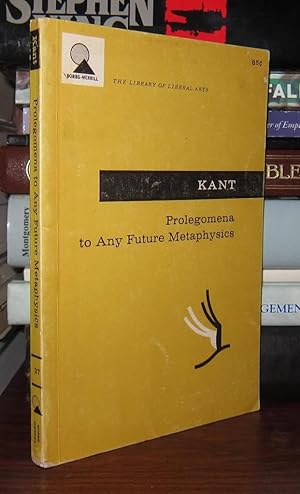
They are sentences in which the subject and the predicate are identical-for example, sentences like "all bodies (physical objects) are extended in space," "all bachelors are unmarried," "gold is a yellow metal." To be a body means, by definition, to take up space, therefore that is an analytical judgment. Analytical judgments add nothing to the object that they describe. He will begin by distinguishing the two.īefore beginning, however, Kant draws a distinction between two kinds of a priori judgments: analytical and synthetic.

Physics and psychology are based on experience of the outer and inner world, respectively, so metaphysics’ closest analog is mathematics. Metaphysical knowledge comes not from observing the world, but from pure reflection. Metaphysical judgments cannot be based on experience because, by definition, metaphysics is the use of the human mind to obtain a priori knowledge-literally, knowledge that precedes experience.

He proposes to do this by defining its field of inquiry.

Kant begins the Prolegomena by stating his intention to distinguish philosophy-as he calls it, metaphysics-from mathematics and the natural sciences, particularly physics.


 0 kommentar(er)
0 kommentar(er)
